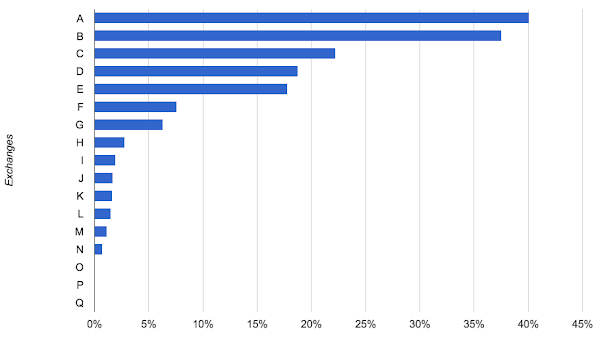Protecting marketers from falsely represented inventory
Posted:
Wednesday, December 2, 2015
As we've stated before, we're committed to keeping fraudsters out of the broader advertising ecosystem. Today we're looking at a specific aspect of this fight: the false representation of domains in ad inventory.
The false representation of domains in ad inventory occurs when publishers intentionally make it look like their traffic is coming from another website (usually a well-known, premium website) in order to charge higher rates for ads. This practice deceives advertisers who end up paying to appear on sites with which they may not want to be associated, and harms legitimate publishers, who aren't actually receiving the funds from ads sold in their name.
The two examples below illustrate how a branded ad can end up on a sketchy website through false representation of a domain.


When a source of fraudulently misrepresented domain information is identified in Bid Manager, a filter is used to exclude invalid inventory with a high degree of confidence before advertisers bid on it, regardless of exchange or reported domain. We’ve discovered that in some instances this type of activity has accounted for up to 40% of inventory for a particular exchange.

As a recent example, we noticed a publisher attempting to sell ad inventory on a pirated movie sharing website that was falsely represented with the domain name of a well-known newspaper. Fortunately, our new filter prevented ads from being purchased and displayed, thereby safeguarding advertisers from fraud and preventing this copyright infringing publisher from receiving advertising revenue.
We also recognize that there are valid use cases for selling inventory via alternate domains, which is why we have taken great care to ensure that our filter targets only cases where the false representation masks the real value of the inventory.
1 Includes only exchanges from which DoubleClick Bid Manager buys >1 million impressions per day
Deceptive ad inventory
Imagine ordering a designer handbag, only to receive a cheap imitation. Unfortunately, this type of misrepresentation happens all too often with ad inventory.The false representation of domains in ad inventory occurs when publishers intentionally make it look like their traffic is coming from another website (usually a well-known, premium website) in order to charge higher rates for ads. This practice deceives advertisers who end up paying to appear on sites with which they may not want to be associated, and harms legitimate publishers, who aren't actually receiving the funds from ads sold in their name.
The two examples below illustrate how a branded ad can end up on a sketchy website through false representation of a domain.


Protecting against falsely represented inventory in DoubleClick Bid Manager
As part of our commitment to strengthening the integrity of our digital marketing solutions, we've added a new feature to DoubleClick Bid Manager that blocks many cases of domain misrepresentation, one of the most severe types of falsely represented ad inventory.When a source of fraudulently misrepresented domain information is identified in Bid Manager, a filter is used to exclude invalid inventory with a high degree of confidence before advertisers bid on it, regardless of exchange or reported domain. We’ve discovered that in some instances this type of activity has accounted for up to 40% of inventory for a particular exchange.
Percent of misrepresented ad domains by exchange1

Publishers benefit as well
It’s not just advertisers who will benefit from this new feature. The filter ensures that high quality inventory from top publishers is correctly valued and better defended against misrepresentation. As a case in point, we found that 10% of inventory offered for sale claiming to come from two popular US newspapers was in fact from other publishers falsely representing themselves as the two newspapers.We also recognize that there are valid use cases for selling inventory via alternate domains, which is why we have taken great care to ensure that our filter targets only cases where the false representation masks the real value of the inventory.
Available to all marketers on Bid Manager
We continually look for new ways to improve and defend our advertising platforms against ad fraud, and we’re proud to offer this new feature directly on Bid Manager, without the need for advertisers to maintain blacklists or configuration settings. We’re happy to further protect advertisers and legitimate publishers by giving the boot to pretenders offering bad inventory.| Posted by Andres Ferrate Chief Advocate, Google Ad Traffic Quality |

